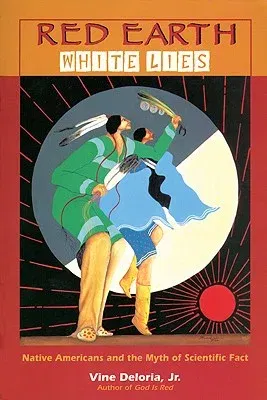In this latest work by the prominent historian, Deloria turns his
audacious intellect and fiery indignation to an examination of modern
science as it relates to Native American oral history and exposes the
myth of scientific fact, defending Indian mythology as the more truthful
account of the history of the earth. Deloria grew up in South Dakota, in
a small border town on the Pine Ridge Indian Reservation. There he was
in a position to absorb the culture and traditions of Western Europeans,
as well as of the native Sioux people. Much of the formal education he
received about science, including how the earth and its people had
formed and developed over time, came from the white, Western world; he
and his fellow students accepted it as gospel, even though this
information often contradicted the ancient teachings of the Native
American peoples. As an adult, though, Deloria saw how some of these
scientific "facts, " once readily accepted as the truth, now began to
run against common sense as well as the teachings of his people. For
example, the question of why certain peoples had lighter or darker skins
posed an especially thorny problem - one that mainstream journals and
books failed to answer in a way that was satisfactory to this budding
skeptic. When he began to reexamine other previously irrefutable
theories - of the earth's creation, of the evolution of people, of the
acceptance of the notion that the Indians themselves had been
responsible for slaughtering and wiping out certain large animals from
their habitat over time - he also began to reconsider the value of myth
and religion in an explanation of the world's history and, in the
process, to document and record traditionalknowledge of Indian tribes as
offered by the tribal elders.

